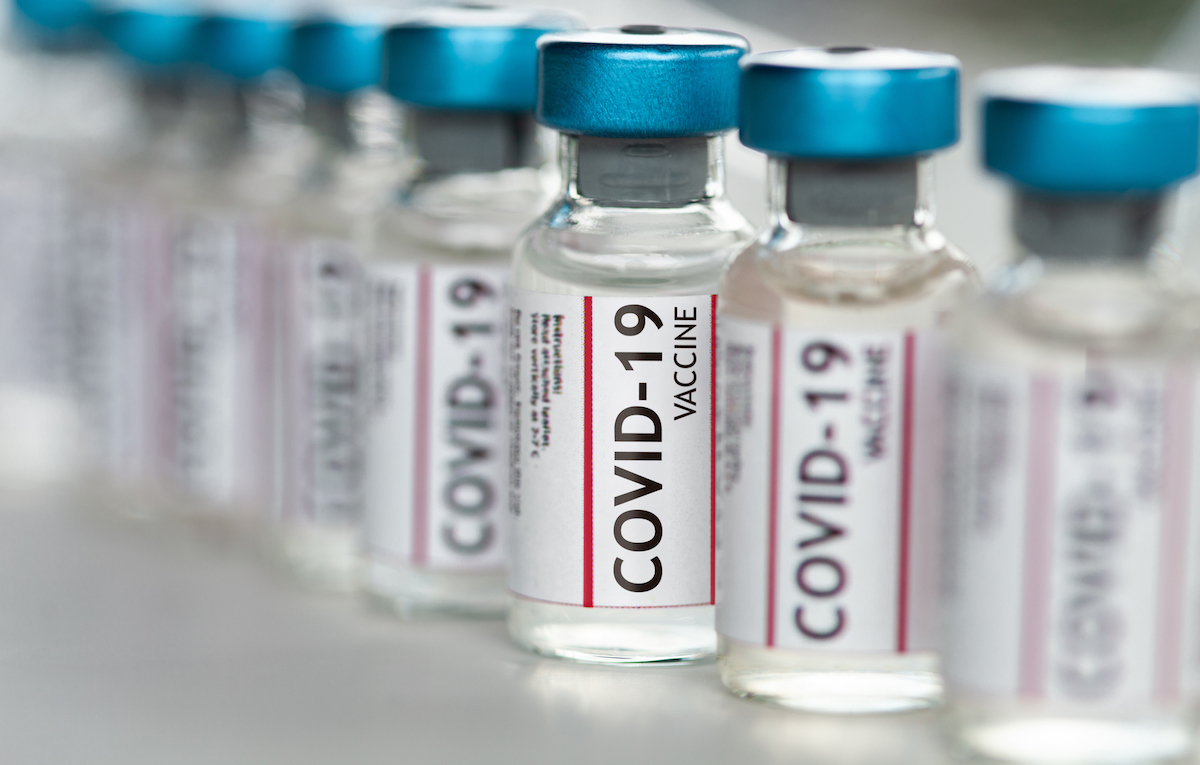<< Back
FDA Grants Pfizer Vaccine Full Approval: 5 Takeaways

August 23, 2021
The COVID-19 vaccine from Pfizer-BioNTech received full approval Monday for Americans 16 years old and up from the Food and Drug Administration, a new name (Comirnaty) and perhaps a new level of acceptance from people reluctant to receive a vaccination.
“This solidifies one more milestone toward the journey of creating a safer society in the COVID pandemic,” said Dr. Ajay Kumar, Hartford HealthCare’s Chief Clinical Officer, at an afternoon media briefing. “I’m very excited that the FDA approved it in August. We thought it was going to take some more time, but I’m glad they were able to get their arms around all the data and scientific evidence.”
Here are five takeaways from the FDA’s first full approval of a COVID-19 vaccine:
More people will volunteer to get vaccinated.
About 30 percent of an estimated 85 million unvaccinated adults said they would not get innoculated until the COVID-19 vaccine was officially approved by the FDA, according to a recent poll by the Kaiser Family Foundation. Each of the the COVID-19 vaccines — Pfizer-BioNTech, Moderna and Johnson & Johnson — have been available under emergency use authorization from the FDA. The Pfizer-BioNTech vaccine, which uses mRNA technology, last December became the first to receive EUA for people 16 and up. It received additional EUA in May for people 12 and older.
What’s the difference between EUA and full approval?
For an EUA, at least half of the original clinical trial participants must be monitored for a minimum of two months after their vaccination. This is when most side effects occur. For full approval, the clinical trial participants must be monitored for at least six months. All adverse side effects are examined.
“We evaluated scientific data and information included in hundreds of thousands of pages, conducted our own analyses of Comirnaty’s safety and effectiveness, and performed a detailed assessment of the manufacturing processes, including inspections of the manufacturing facilities,” said Dr. Peter Marks, director of the FDA’s Center for Biologics Evaluation and Research.
The EUA, as the name suggests, requires an emergency such as a pandemic but does not cut corners on vaccine safety and effectiveness. More than 43,000 people participated in the Pfizer-BioNTech clinical trials. More than 202 million Pfizer-BioNTech vaccine doses have been administered in the United States through Aug. 18. With more vaccine data, a company such as the Pfizer-BioNTech collaboration can apply for full approval.
“I will put it in layman’s terms,” said Sen. Richard Blumenthal at an media briefing at Hartford Hospital. “Believe your eyes and ears. Millions and millions of people have received this vaccine. They’re protected with no side effects. The evidence with your eyes and ears, even if you have never heard of the FDA, should convince you to be vaccinated.”
More people will be required to get vaccinated.
More than 400 colleges and universities require students to get vaccinated. Connecticut hospital systems, including Hartford HealthCare, have already agreed to vaccine mandates. But a full approval for a COVID-19 vaccine makes many more mandates likely.
The Pentagon said after the FDA’s announcement that it would make the vaccine mandatory for U.S. military personnel.
United Airlines said recently that its employees must show proof of vaccination within five weeks of FDA approval. More state and local governments, businesses, restaurants, concert venues and sporting events will likely follow with vaccination requirements.
The Moderna and Johnson & Johnson vaccines will remain available.
Emergency use authorization, received by both the Moderna and Johnson & Johnson vaccines, is typically available only when there’s no FDA-approved alternative. Even with Pfizer-BioNTech vaccine’s full approval, the ongoing COVID-19 emergency should not change the status of the other two vaccines. Moderna’s application for full approval is under review by federal regulators. Johnson & Johnson is expected to seek full approval soon.
“I would imagine by the end of September or October we will hear more details about Moderna and probably some sort of approval around that time frame,” said Dr. Kumar.
Here are the vaccinations administered by Hartford HealthCare:
Total vaccinations: 498,031 (374,095 Pfizer-BioNTech).
- Pfizer first dose: 191,553.
- Pfizer second dose: 182,542.
- Moderna first dose: 52,227.
- Moderna second dose: 49,868.
- Johnson & Johnson (single dose): 21,841.
More power for physicians.
After the FDA’s action, physicians should be able to prescribe a third dose of the Pfizer-BioNTech vaccine off-label for any patient who might benefit from the extra protection against COVID-19.
Comirnaty becomes a marketable drug.
Pfizer will use the name Comirnaty to market the vaccine to healthcare providers and the general public. Such marketing is restricted by the FDA for drugs with emergency use authorization.